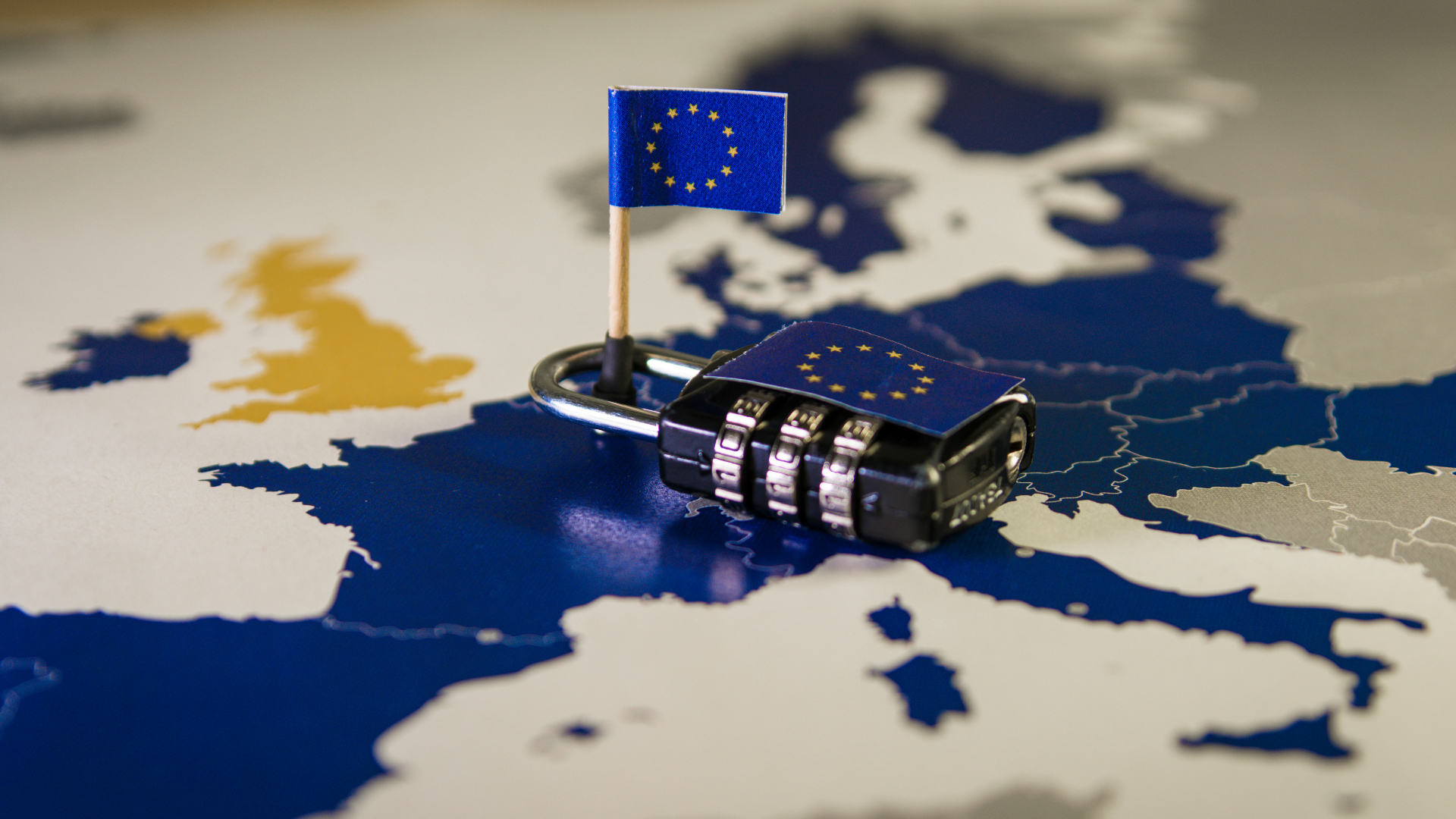How big data will change our lives
Big data can be seen as daunting, but with proper handling it could be the most significant opportunity for people and business this century

The phrase “big data” itself unnerved some of us a few years ago. And in light of recent worries concerning improper use of personal data, it’s taken on a sinister note for some. But the increasingly huge wealth of data about every aspect of life now available is one of the miracles of the connected computing era. We create 2.5 quintillion bytes of data every day, and that figure is also increasing daily. Despite the valid concerns about the misuse of personal data, all this information has the potential to revolutionise every area of our lives in beautifully beneficial ways.
The key ingredient is how you interpret and use all that data and we’re only just scratching the surface of what can be achieved with all the information. This is because big data is by definition beyond what traditional data-processing application software is designed to cope with. Research group Gartner’s Doug Laney coined the “3 Vs” to define big data back in 2001, standing for volume, velocity and variety. More recently variability, veracity and complexity have been suggested as additions.
What all these parameters are intended to illustrate is that it’s not just the amount of information that defines “big data”, but the speed at which it is arriving and the many different categories involved. Both the number of cases and the attributes for each one are orders of magnitude larger than previous data repositories. For example, wearables such as sports watches are collecting a wealth of information about people’s exercise habits and this often includes details like heart rates, location throughout a routine, cadences for cycling and running, and even blood oxygen levels.
The Week
Escape your echo chamber. Get the facts behind the news, plus analysis from multiple perspectives.

Sign up for The Week's Free Newsletters
From our morning news briefing to a weekly Good News Newsletter, get the best of The Week delivered directly to your inbox.
From our morning news briefing to a weekly Good News Newsletter, get the best of The Week delivered directly to your inbox.
Businesses now rely on the data they collect about their customers, so how this is used effectively by employees is paramount. The modern era of “digital” companies like Google, Facebook, Uber and Airbnb are more about how they use the data they collect than what they actually trade in or produce. There is a huge debate about the relationship between these kinds of companies and their users. In the case of pure data companies like Facebook, there is a more complex value exchange than traditional commerce. With the latter, the customer parts with money and receives a product or service in return.
But with a company like Facebook or Google, the end user doesn’t part with any money for the service they receive – such as social network media sharing or internet search results, email and cloud-based applications. Instead, what they exchange is their personal information. Data is the currency that users spend to receive the services provided. Regulatory frameworks like GDPR have arisen in recognition of the value of the data users part with when they access these services. However, many users don’t realise (or care) how much personal data they are giving away. The entertainment and social interaction they receive in return is sufficient to make them feel that they get more back than they spend.

All businesses collect data about their users, and whether or not users feel uncomfortable about this depends on how this information is used, as well as what they get in return. At one end of the scale, passing on personal details for third-party marketing purposes is not usually appreciated. However, the ability to use a system like Apple Pay to order a food delivery using just a thumbprint to verify identity and transfer the necessary funds is much more convenient than digging in your pocket for a credit card. Handing over your credit card details to Apple is necessary for this convenience. When this process also passes on your address details to the delivery company automatically, it’s an even more seamless experience.
This is just the smallest tip of the iceberg. Big data promises to make emerging services like car sharing meet end user needs more seamlessly. Putting aside those who own cars for enthusiast reasons, the biggest barrier preventing people from switching to car sharing from personal ownership is the fear of not having their vehicle available exactly when they need it. But accurate predictive analysis of behaviour, bringing in factors like weather, current events and even personal habits, could mean that there is always a car nearby when required, because the data analysis calculated that you would. Perhaps a little spooky, but undeniably convenient. The ability of services like Uber and Airbnb to match provision with need is already showing the potential from well-honed analysis of behavioural data. Similarly, Amazon’s grasp of supply-chain flow allows it to deliver many products the next day, or even the same day.
A free daily email with the biggest news stories of the day – and the best features from TheWeek.com
Over the next few years, the amount of information we share and is amassed about the world around us is set to increase exponentially. Virtually all companies can potentially benefit from collecting the right data and analysing it appropriately. Internet of Things devices, like per-room home thermostats, per-socket power consumption monitoring, health monitoring patches and connected cars with real-time tracking, are set to proliferate. These will be providing huge volumes of data and new possibilities of analysis. The relationship between health and lifestyle, for example, can be explored continually to find improvements.

The bandwidth available to wireless devices will be an order of magnitude higher, too, with 5G already being tested in the UK, for example O2’s trial at the O2 Arena in North Greenwich, London. When 5G is eventually introduced it will allow wireless data speeds up to 1,000 times faster than 4G, and promises much lower latency too. In combination with the Internet of Things revolution, 5G will further enable the exponential growth of data accumulation, particularly real-time supply from intensive sources like video surveillance.
Big data also has the power to make jobs easier for workers in critical areas such as emergency services. Police in the UK, for instance, are already using ‘predictive crime mapping’, where huge amounts of data on crime types, locations and times are processed to generate hotspot maps showing officers where crime is most likely to occur. The NHS, too, has a rich pool of patient data on which to draw. This can aid doctors in everything from recognising the warning signs of diabetes to effectively managing patient flow and ward demand during busy winter months.
As we mentioned at the beginning of this feature, there are potential dangers from all this data. But with the right safeguards and observance of regulations, the fears people have can be allayed, allowing the benefits to shine through. O2, in its business blog post “What does the future of big data look like?”, highlights how regulations like GDPR can be viewed as an opportunity for companies, rather than a threat. Testing your data for compliance should be seen as a chance to review what is being collected and how it is used, with the aim of finding untapped potential. Rather than just being an unwanted extra cost, this process can truly uncover the beautiful future possibilities of big data.
Discover how O2’s technology is helping businesses empower their workforce.
-
 How the FCC’s ‘equal time’ rule works
How the FCC’s ‘equal time’ rule worksIn the Spotlight The law is at the heart of the Colbert-CBS conflict
-
 What is the endgame in the DHS shutdown?
What is the endgame in the DHS shutdown?Today’s Big Question Democrats want to rein in ICE’s immigration crackdown
-
 ‘Poor time management isn’t just an inconvenience’
‘Poor time management isn’t just an inconvenience’Instant Opinion Opinion, comment and editorials of the day
-
 The power of anonymous data
The power of anonymous datafeature The application of anonymous data can be a huge benefit to businesses looking to tailor services more closely to customer behaviour
-
 The guide to workplace security
The guide to workplace securityfeature The dos, the don’ts and everything in between – effective workplace security is the responsibility of every individual in the business
-
 Building connectivity: How 5G will change the way we live and work
Building connectivity: How 5G will change the way we live and workfeature The next generation of mobile data is on the horizon and with it, the potential to revolutionise our everyday lives
-
 A day in the life of a smart city dweller
A day in the life of a smart city dwellerfeature How a truly connected life could spell the end of traffic jams, potholes and the weekly shop
-
 Empowering people to build a better business
Empowering people to build a better businessfeature How can people and tech work in unison to create a better business?
-
 What's driving the digital work revolution?
What's driving the digital work revolution?feature The world of work is evolving so quickly, but are we underestimating the role of people?
-
 The evolution of people in the workplace
The evolution of people in the workplacefeature People are the most important asset for any business, and they need the right tools and platforms to help them flourish
-
 Why the Government wants a mandatory ‘backdoor’ on encrypted technology
Why the Government wants a mandatory ‘backdoor’ on encrypted technologyIn Depth Five Eyes intelligence alliance says gadget makers could face new legislation if they fail to comply